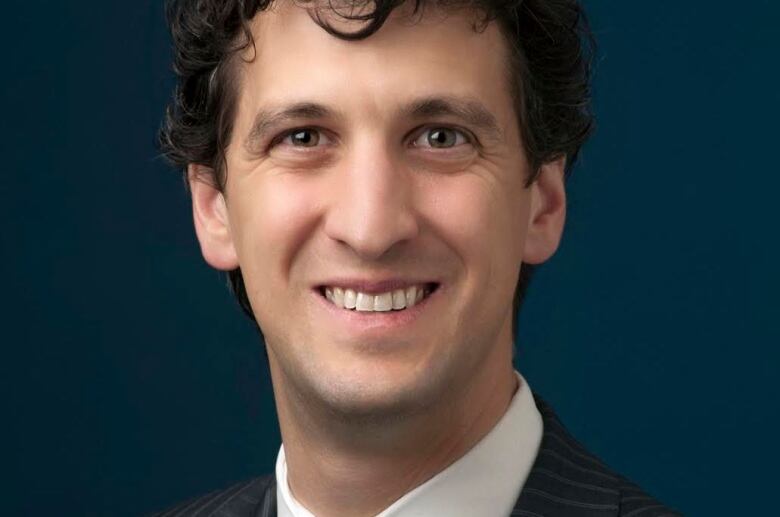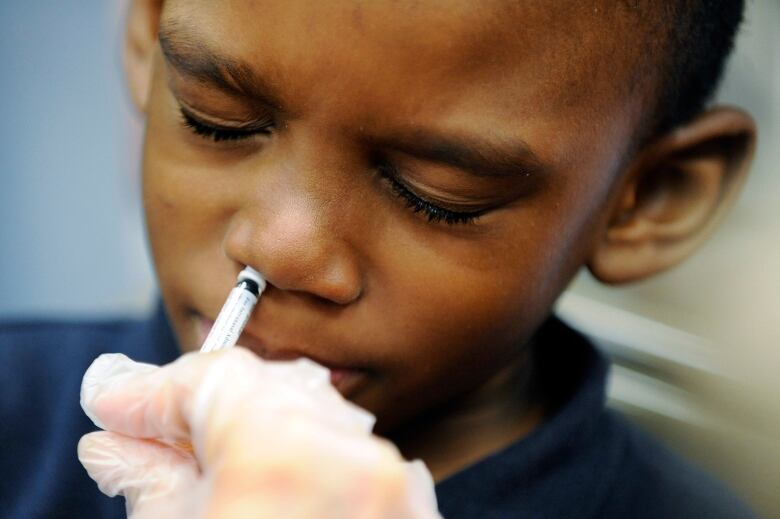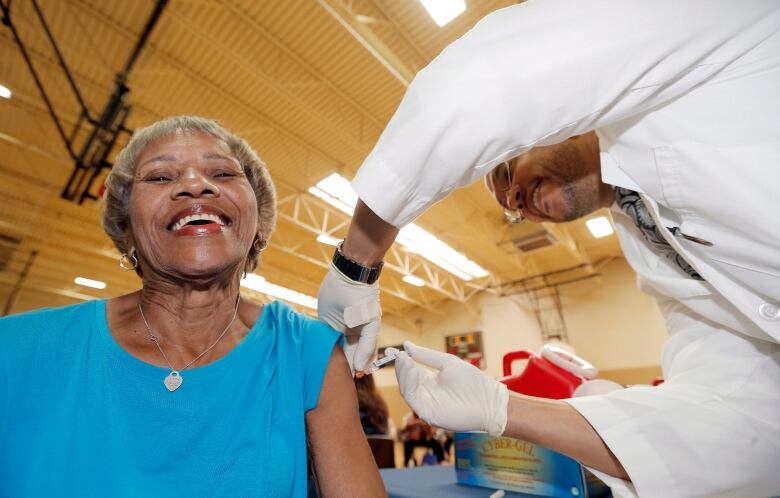Flu shot's 'crystal ball' science still best bet against influenza
Despite last year's 'highly unusual' failure, seasonal vaccine remains the 1st line of defence
The seasonal flu shot is designed by the world's top scientists whohave access to a global network of influenza data but at the end of the day, it's still just guesswork.
Most of the time, they get it right. Other times, like last year in Canada, they miss the mark completely.
Still, medical experts say it is our best defenceagainst a virus that kills thousands of Canadians every year.
- Canada gears up for annual flu vaccine campaign
- H3N2 flu strain may have outfoxed vaccine makers again
- Flu vaccine paradox adds to public health debate
"Peoplewill be a bit cavalier about the flu,but infact, it is a significantillnessfor people andeven fatal for some,"JoshuaTepper,afamily physician andCEO of Health Quality Ontario, told CBC News.
An estimated 12,500 people are admitted to hospital each year for complications arising from the flu and about 3,500 die, according to the Public Health Agency of Canada.
"Thefluvaccineremains the first line of defence," Tepper said. "Even when it's not a perfect match, it still offers protection, andthere's very little downside."

How the flu shotgets made
Every February, based on the flu virusstrains circulating at the time,theWorld Health Organization chooses which ones should be included in the seasonal vaccines that will be distributed in thenorthern hemisphere the following autumn. (A similar process happens later in the year to decide on the flu vaccine for the southern hemisphere's fall season).
"They're looking in the crystal ball and gazing ahead," saidMeenaDawar, medical officer of health at Vancouver Coastal Health."And they have pretty good experience at estimating vaccination candidates most of the time, given that they have decades of experience doing this."
Thedecisionsare based onenormous amount of data that'scollected on influenzayear-round from 140 test centres in 100 countries, all of which is sent to five WHO centres for analysis, Tepper said.
"We're constantly monitoring the virus around the world," he said.

There are three types of influenza virus A, B and C. Human influenzaA and B are the types thatcauseseasonal epidemics in North America almost every winter,according tothe U.S.Centersfor Disease Control.
The seasonal flu shot istrivalent, which means it's configured to protect against against two A strains, H3N2 and H1N1, and one of two B-lineage influenza viruses.
Once the year's formula has been decided,it takesmanufacturers six monthsto produce the vaccine and stockpile enough doses to supply Canada 'sprovincesand territories for theirinoculation programs, which usually take placein mid- to late-October.
Last year's flop
Despite the reams of data and experts' best efforts,there's always a risk the flu shot won't work. Vaccine production takes time and viruses mutate.
Last year's flu shot was a bust in Canadabecause by the time people got immunized, the dominant H3N2 bug affecting the population had changed so dramatically itwas no longer genetically similarto theH3N2component in the vaccine.
Dawarcalled lastyear's failure"highly unusual."Rarely does theflu shot provide an exact match for the dominant circulating strain, but it's usually closeenough to make a difference.
"I've been working the public health field for a decade now and I haven't seen it happen before," Dawarsaid. "Most of the time, they get it bang on."
This season's trivalent shot contains theevolved H3N2 strain fromlast year, as well asH1N1 and B/Phuket.
Making progress
Each year, scientists take into account the previous year's successes and failuresbut are theygetting any better at making an effective flu shot?
"People are constantlyseeking to improve theprocess and streamline it," Tepper said. "Thechallengeis you have toprovidemillionsof dosesof the vaccine, and that takes time. Therealityis the production anddistributiontakes time."
Still, health officials are making progress, especially when it comes to protecting those most vulnerable to influenza children and the elderly.
For the first time this year,Ontario's public health insurancewillcovering a nasal spray version of the fluvaccine for children.
"It's less invasive. We want to see uptake inall populations increase, but especially in our vulnerable groups, which include children,"Justeen Mansourian-Christakos,a nurse with the Sudbury and District Health Unit, told CBC News.
Most other provinces started offering the spray in recent years.New Brunswick and Nova Scotia are the only remaining provinces that don't cover it.

For the first time this year,Canada has approved the use of afour-strain, orquadrivalent, vaccine that contains a second B-lineage virus called B/Brisbane.
Alberta, B.C.,Ontario and P.E.I. are offering it exclusively to children, whoare more susceptible to B strains. Quebec is giving it to infants and children with low immune function. The other provinces and territories are making it available both to children and adults.
In the future, we may also see a specific vaccine tailored to the elderly, Tepper said.
A Canada-U.S. study publishedin the New England Journal of Medicine last year found a higher dose is more effective for people over 65.
"I think this is an emerging area we'll be hearing more about," Tepper said.
'The only way'
Shortcomings aside, health-care professionals across Canada continue to encourageeveryone get their annual flu shot.
"We absolutely recommend that Canadians get their vaccine," Dawar said."It's very important to protect yourself from influenza, and getting the flu shot is the only way to project yourself from getting the flu."
What's more, she said, if getting vaccinateddoesn't protect you from the flu outright, you'llstilllikely experience a milder form of it.
Tepper said people should take others into considerationwhen deciding whether to get vaccinated.
"You're notalways getting the vaccine to keep yourself healthy. You're getting the vaccine to keep those around you healthy,particularlythose who are very young or very old."

With files from The Canadian Press













_(720p).jpg)


 OFFICIAL HD MUSIC VIDEO.jpg)
.jpg)



























































































